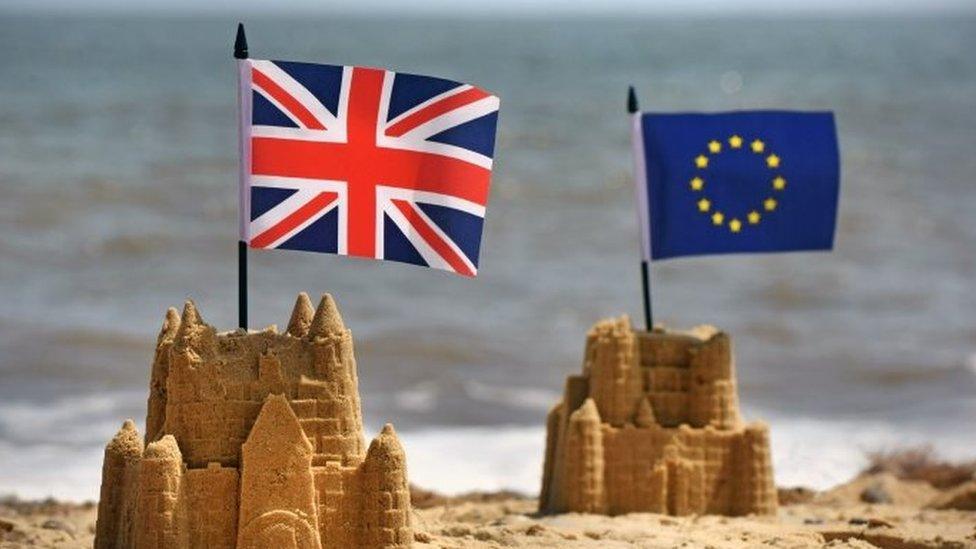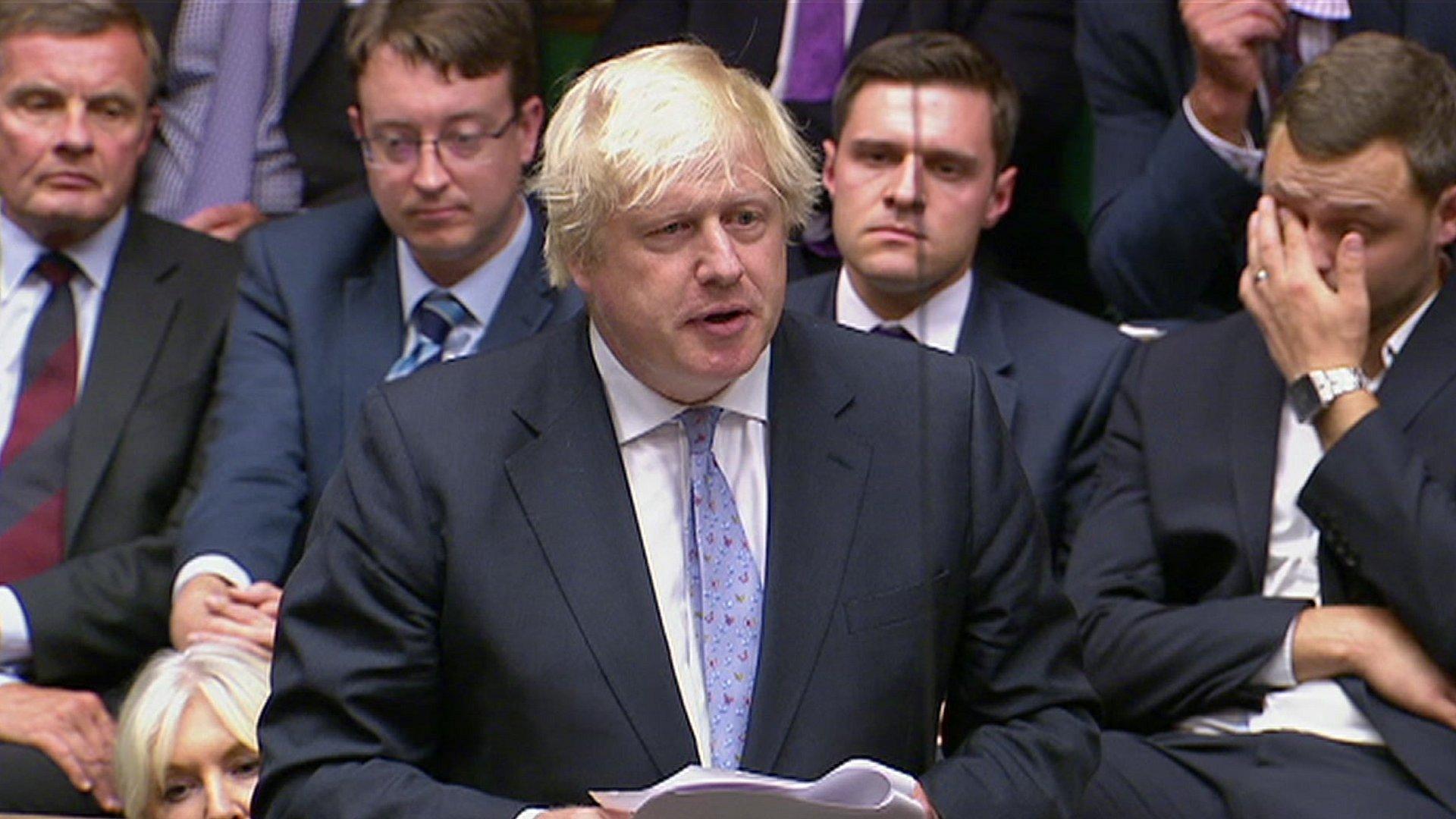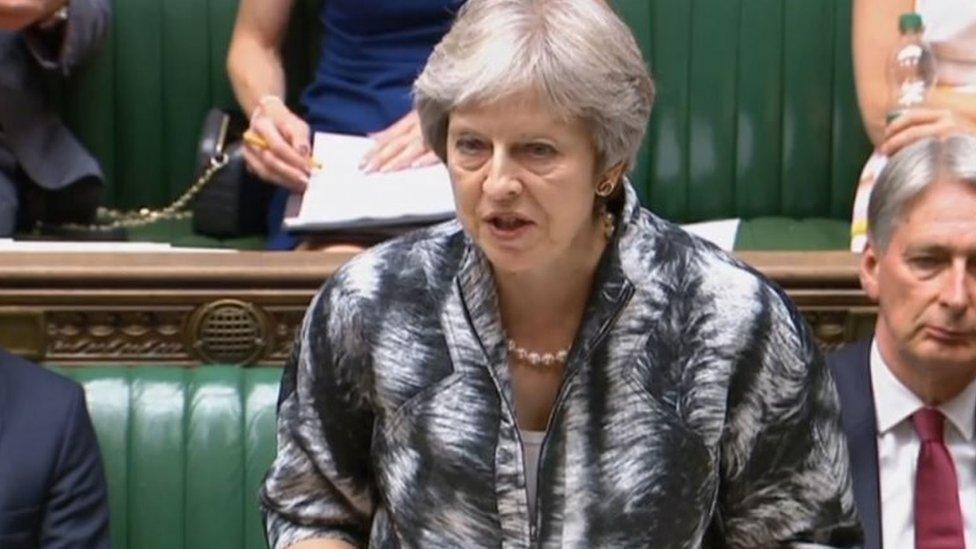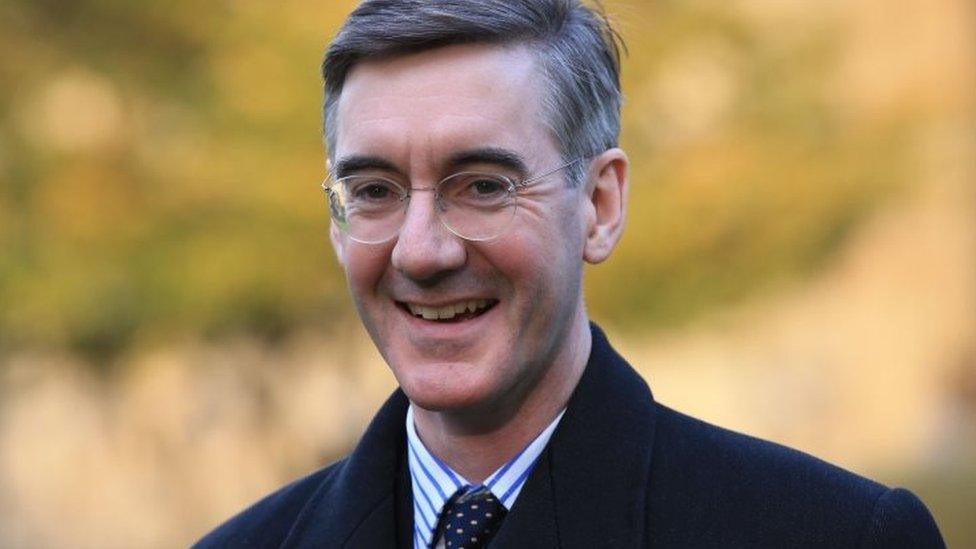Boris Johnson says Irish border 'politically charged'
- Published
Former Foreign Secretary criticises the approach to the Irish border and Brexit.
The former foreign secretary, Boris Johnson, has said the Irish border has become "politically charged" and was dominating the Brexit debate.
Monday's vote in the House of Commons ensured there would be no customs border down the Irish Sea.
It effectively rendered the EU's backstop vision unlawful.
Mr Johnson said the question of the Irish border, "which had hitherto been assumed on all sides to be readily soluble" had been allowed "to become so politically charged as to dominate the debate".
He also emphasised that checks away from the Irish border and technical solutions were possible.
He cited concerns raised by himself and former Brexit secretary David Davis, saying: "When I and other colleagues... proposed further technical solutions to make customs and regulatory checks remotely, those proposals were never properly examined, as if such solutions had become intellectually undesirable in the context of the argument."
Mr Johnson added that "after the December joint report whose backstop arrangement we were all told was entirely provisional never to be invoked it became taboo even to discuss technical fixes".
The prime minister insisted that she stuck by her "no deal is better than a bad deal" position, despite the implications that might have for the Northern Ireland border.
Theresa May was addressing the parliamentary liaison committee on Wednesday afternoon.

When she was asked if "no deal" would result in a hard border she told MPs: "There isn't the sort of simple answer to that that you are looking for.
"We would need to consider what action we would take in those circumstances," she added.
"The Irish government and the European Commission would need to consider what action they would take."
Mrs May said the European Commission had been "very clear that if there is no agreement in relation to customs arrangements then there have to be checks at the border".
She told the liaison committee: "You ask me about the fact that I have said 'no deal is better than a bad deal'. I think that is right, I remain by that.
"Some have suggested that we would be prepared to pay 'any price' for something, I think that would not be a good deal for the UK."
The DUP supported the Commons move on a customs border, but the SDLP and Alliance fear the prospect of a no deal scenario.
The Irish government's position is that there can be no Brexit deal without a backstop to prevent a hard border on the island of Ireland.
Earlier this week, the Irish prime minister Leo Varadkar said a deal was still possible but added his government will "step up our preparations for a no-deal scenario".
- Published18 July 2018

- Published16 October 2019

- Published17 July 2018

- Published16 July 2018
